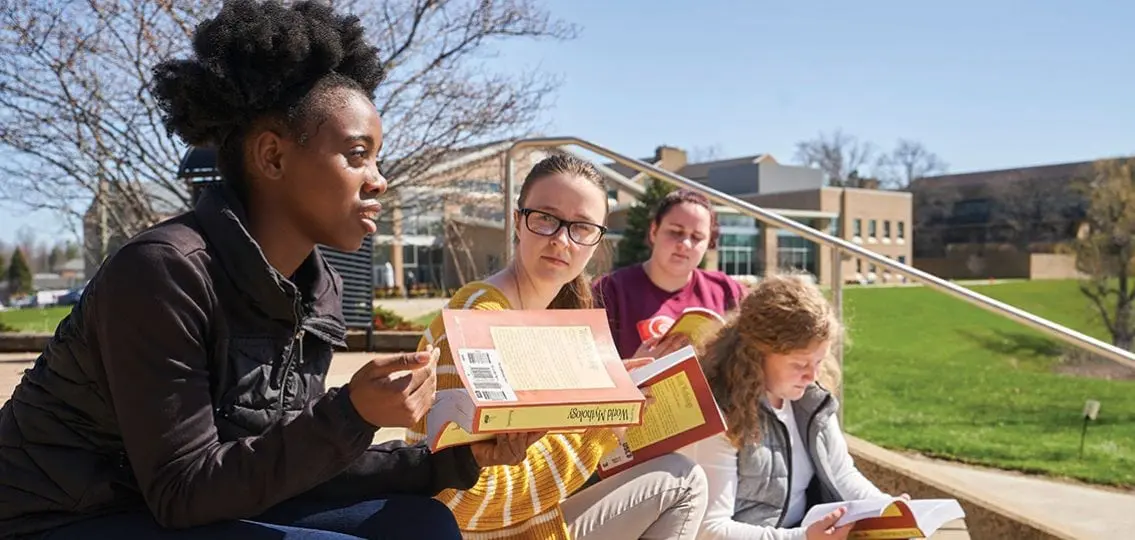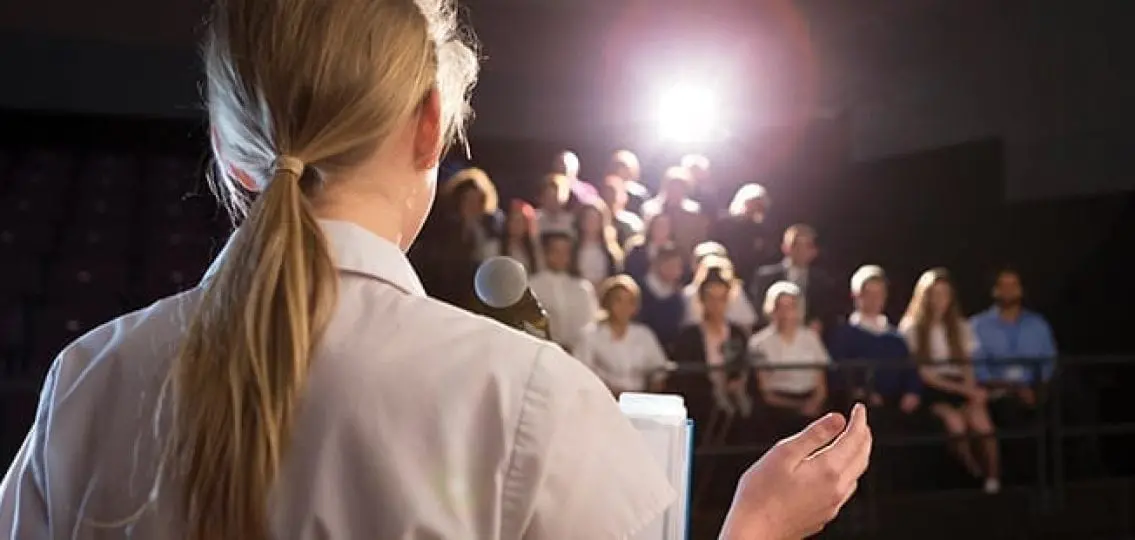Public speaking for teens is a life skill that your son or daughter can learn early and continue to use their entire lives. Laurie Lande’s twin sons joined their middle school debate team as sixth graders. They’re still going strong as rising juniors at Beverly Hills High School in California.

“I saw the value of debate when it comes to applying for colleges, so I encouraged them to try it. To my pleasant surprise, they liked it,” shares Lande, who works as a private college counselor. “The first year, they didn’t win a single debate, but by the time they finished middle school, they had gone to the state qualifier.”
Now her sons can confidently debate current topics such as the Glass-Steagall Act, a Great Depression-era banking regulation that Congress has recently considered reinstating. Or changes in minimum wage laws.
They’re also much more well-spoken in everyday life. “The best benefit has been that my kids almost never use filler words like ‘um’ or ‘like,’” says Lande. “Debate teaches you to really think about every word.”
Erasing bad habits (such as the dreaded use of “like”) is a primary focus for New York-based public speaking coach Larry Gleason, who works with young adults on everything from how to stop fidgeting to increasing attention span for better focus. Instead of focusing on the negative, such as a soft voice or a tendency to slouch, Gleason suggests parents “frame what they are trying to reinforce with a positive vibe: ‘You look more powerful when you stand tall’ [or] ‘You’ve got a great voice that should be heard.’”

Whether it’s homework or debate prep, “parents can also encourage home practice and give their teen space,” Gleason says. “Teens can feel self-conscious working on speeches and presentations with parents and older siblings hovering nearby. Give them a room, close the door, and don’t hover.”




